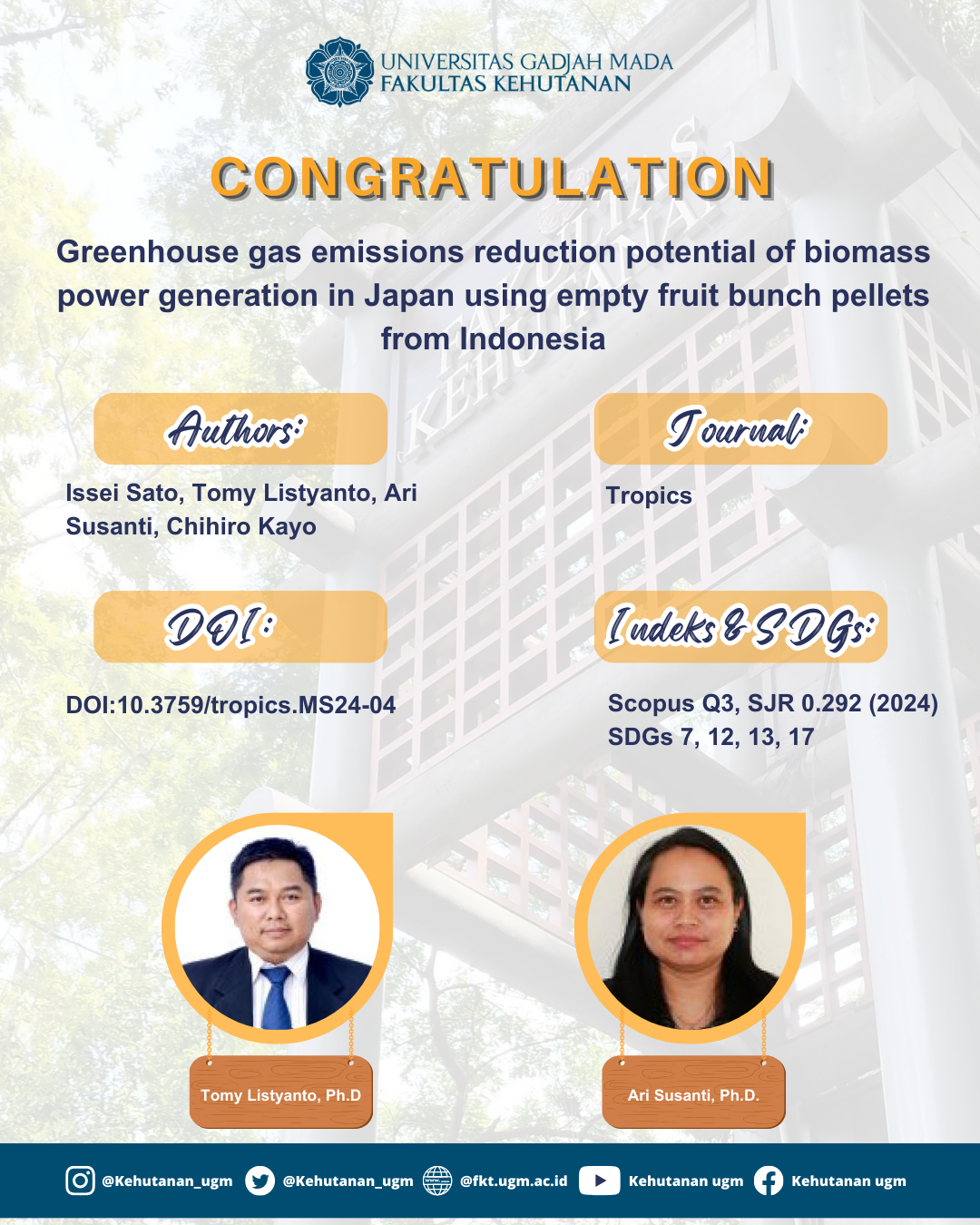
Abstract
This study evaluated the greenhouse gas (GHG) emissions reduction potential of utilizing empty fruit bunch (EFB) pellets from Indonesia as a power generation fuel in Japan. EFB is commonly processed through mulching or combustion; thus, these methods were used as the reference scenarios to compare emissions with EFB pellet utilization. Additionally, we assessed whether EFB pellets could outperform coal-fired and liquid natural gas (LNG) combined cycle power generation in terms of GHG emissions reduction. The life-cycle GHG emissions for EFB pellet utilization in Japan were calculated at 285 kg-CO2eq per metric ton of EFB (at 60 % moisture content, wet basis), surpassing the reference scenario by 278‒279 kg-CO2eq. Compared to coal-fired power generation, EFB pellet utilization achieved a 33 % GHG emissions reduction, but emissions exceeded those of LNG combined cycle generation. The primary emissions source was biogas derived CH4 released during wastewater treatment in pellet production. A sensitivity analysis, considering biogas treatment rates and power generation efficiency, demonstrated that EFB pellet use could reduce GHG emissions relative to LNG combined cycle generation under specific conditions. These include operation in large-scale power plants with a generation efficiency of at least 40 % and a biogas reduction rate of 49 %. The findings suggest that EFB pellet utilization in Japan could contribute to GHG emissions reduction if a stable supply system is established to support large-scale power plants. Successful implementation requires developing incentives for biogas treatment at pellet mills and accurately assessing EFB availability to prevent competition with existing uses.
SDGs:
SDG 7: Affordable and Clean Energy
SDG 12:Responsible Consumtion and Production
SDG 13:Climate Action
SDG 17:Partnerships for the Goals
Link Dokumen:
Download
